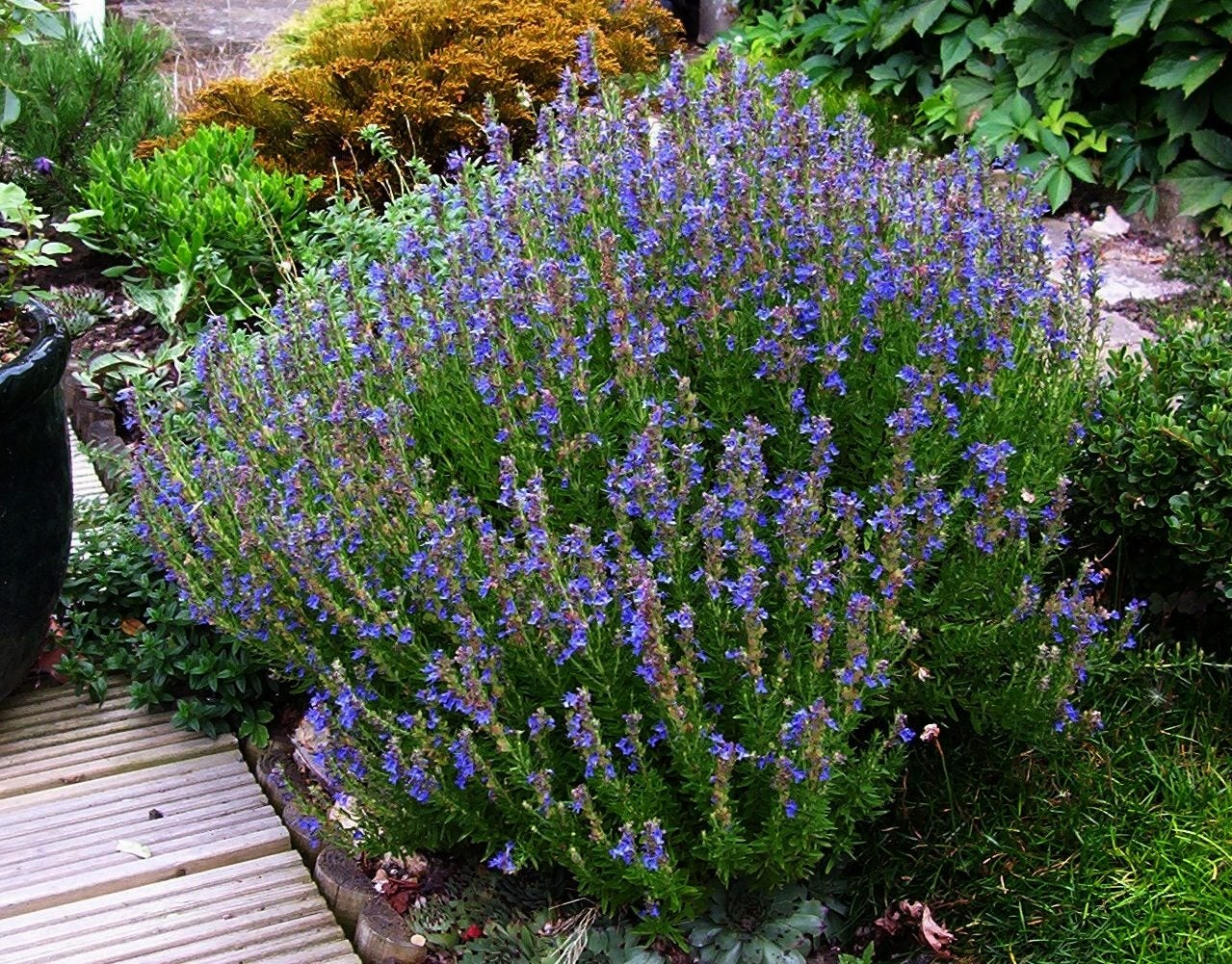Tips For Growing Hyssop Plant In Your Garden


Sign up for the Gardening Know How newsletter today and receive a free copy of our e-book "How to Grow Delicious Tomatoes".
You are now subscribed
Your newsletter sign-up was successful
Hyssop (Hysoppus officinalis) is an attractive flowering herb commonly grown for its flavorful leaves. Growing a hyssop plant is easy and makes a lovely addition to the garden. The spikes of blue, pink, or red flowers are great for attracting important pollinators to the landscape as well.
Growing Hyssop as a Garden Plant
Although most hyssop plants are grown in herb gardens, they also have their place in flower gardens as border plants. Hyssop makes a great edging plant when grown in masses as well, but did you know that hyssop plants can also be grown in containers? When you grow hyssop in containers, make sure the pot is large enough to accommodate the large root systems. Hyssop plants prefer to be grown in areas with full sun or partial shade. They need well-drained soil, a bit on the dry side, amended with organic matter.
How to Plant Hyssop Seed
The most common way to plant hyssop is by sowing seeds. Sow hyssop seeds indoors or directly in the garden about eight to 10 weeks before the last frost. Plant hyssop just beneath the soil's surface or about a quarter inch (0.6 cm.) deep. Hyssop seeds usually take between 14 and 21 days to germinate and can be transplanted (if sown indoors) in the garden after the threat of frost has ended in spring.
Space hyssop plants about 6 to 12 inches (15-30 cm.) apart. Once blooming has ceased and seed capsules have completely dried, they can be collected and stored for growing hyssop the next season. In some areas, however, hyssop plants will self-seed readily. In addition, the plants can be divided in fall.
Harvesting & Pruning Hyssop Plants
If growing hyssop for use in the kitchen, it is best used fresh. However, it can be dried or frozen and stored for later use. When harvesting a hyssop plant, cut it in the morning hours once any dew has dried. Hang the plants upside down in small bunches to dry in a dark, well-ventilated area. Alternatively, you can place the leaves in a plastic bag after removing them from the stems and place in the freezer until ready to use.
When you grow hyssop as a garden plant, trim back established hyssop plants heavily in early spring and again after flowering to prevent them from becoming too spindly. Cutting back the foliage also encourages bushier plants. Growing hyssop as a garden plant is not only easy but can also attract wildlife like butterflies and hummingbirds to the garden. In addition, hyssop leaves can be harvested for use in salads, soups and other dishes.
Sign up for the Gardening Know How newsletter today and receive a free copy of our e-book "How to Grow Delicious Tomatoes".

Nikki Tilley has been gardening for nearly three decades. The former Senior Editor and Archivist of Gardening Know How, Nikki has also authored six gardening books.